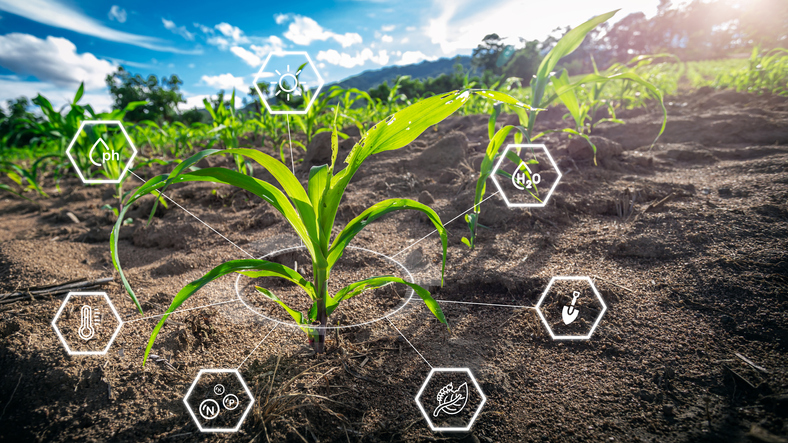In the face of escalating environmental concerns and the urgent need for sustainable practices, the spotlight is increasingly turning towards sustainable agriculture. As we delve deeper into the realm of eco-conscious farming, it's essential to understand the core principles that underpin this transformative approach. In this blog, we'll take a closer look at the 7 Practices Of Sustainable Agriculture, shedding light on their significance and impact.

Soil Health: The Foundation of Sustainability
One of the fundamental pillars of sustainable agriculture is soil health. Healthy soil teeming with diverse microbial life is essential for nutrient cycling, water retention, and plant growth. Practices such as crop rotation, cover cropping, and minimal tillage are integral to preserving soil structure and fertility. By nurturing the soil, farmers not only enhance crop productivity but also contribute to mitigating climate change through carbon sequestration.
Water Conservation: Preserving Earth's Most Precious Resource
Water conservation lies at the heart of sustainable agriculture. Efficient irrigation techniques, such as drip irrigation and rainwater harvesting, minimize water wastage while ensuring optimal crop hydration. Additionally, implementing agroforestry systems and incorporating water-saving technologies can further bolster water resilience on farms. By prioritizing water stewardship, farmers play a pivotal role in safeguarding freshwater resources for future generations.
Biodiversity Enhancement: Cultivating Nature's Resilience
Diverse ecosystems are inherently more resilient to pests, diseases, and environmental fluctuations. Sustainable agriculture emphasizes the preservation and enhancement of biodiversity on farms. This involves planting native species, creating habitat corridors, and avoiding the use of chemical pesticides and fertilizers that harm beneficial wildlife. By fostering biodiversity, farmers promote ecological balance and foster natural pest control mechanisms.
Energy Efficiency: Harnessing Renewable Resources
Reducing reliance on fossil fuels and transitioning towards renewable energy sources is paramount in sustainable agriculture. From solar-powered irrigation systems to biofuel production from agricultural waste, innovative technologies offer viable alternatives to conventional energy sources. By embracing energy efficiency measures, farmers not only reduce their carbon footprint but also mitigate the impact of climate change on agricultural productivity.
Conservation Tillage: Minimizing Soil Disturbance
Conventional tillage practices contribute to soil erosion, loss of organic matter, and degradation of soil structure. Conservation tillage techniques, such as no-till farming and mulching, minimize soil disturbance while preserving soil health. By maintaining ground cover and minimizing erosion, farmers enhance soil stability and resilience to extreme weather events. Conservation tillage also reduces fuel consumption and machinery wear and tear, leading to cost savings for farmers.
Integrated Pest Management: Balancing Ecology and Economics
Effective pest management is essential for crop protection, but reliance on chemical pesticides can have detrimental effects on human health and the environment. Integrated Pest Management (IPM) adopts a holistic approach that combines biological, cultural, and mechanical interventions to control pests while minimizing chemical inputs. By promoting natural predators, crop rotation, and habitat diversification, IPM strategies offer sustainable solutions to pest management challenges.
Economic Viability: Sustaining Farms and Livelihoods
Sustainable agriculture must be economically viable to ensure the long-term prosperity of farming communities. By optimizing resource use, reducing input costs, and accessing niche markets for organic and sustainably produced goods, farmers can enhance their profitability while promoting environmental stewardship. Moreover, government incentives and support programs play a crucial role in incentivizing sustainable practices and fostering a thriving agricultural sector.
Conclusion:
As we navigate the complexities of modern agriculture, embracing the 7 Practices Of Sustainable Agriculture is imperative for building a more resilient and regenerative food system. At KavyaOrganicFarm, we are committed to championing sustainable practices that prioritize soil health, biodiversity conservation, and economic viability. By adhering to these principles, we pave the way for a greener, healthier future for generations to come. Join us in our mission to cultivate sustainability and promote the keyword "A Closer Look at the 7 Core Principles of Sustainable Agriculture" for a brighter tomorrow.

No comments yet